AkzoNobel exec talks Vietnam's strategic regional importance
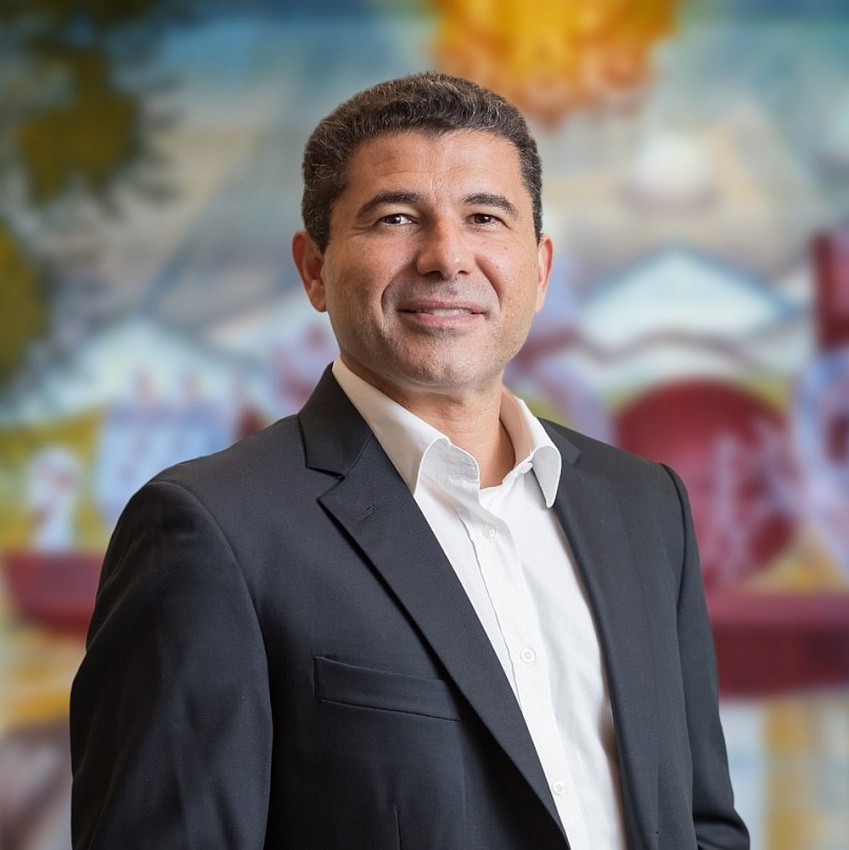 |
| Daniel Campos, global business unit director for Decorative Paints Asia and executive committee member at AkzoNobel |
How is AkzoNobel helping to support development in Asia, especially in Vietnam?
When it comes to decorative paints globally, Asia - particularly Vietnam - is one of the most dynamic regions. Over the past few years, there have been many shifts, especially in the construction market. Despite these changes, we continue to see strong momentum, especially in the renovation sector. In fact, nearly 90 per cent of our business in Vietnam is focused on renovation.
At the end of the day, we're helping people renovate their homes - making them more beautiful and better protected, but in a more sustainable way. Our passion is bringing colour into people’s lives because we believe life with colour is always more joyful. But we also want to do this in a way that protects homes - both inside and out - and does so sustainably.
That’s what we aim to contribute through our decorative paints business in Vietnam. There’s strong demand for our products, driven by a large and growing population, with more and more homes being built. Whether it’s helping people decorate their first homes or redecorate existing ones, we want to support them sustainably.
AkzoNobel has made significant investments, including a new research and development (R&D) centre in Malaysia and green manufacturing sites in Vietnam. How are these developments enabling the efforts you mentioned above?
AkzoNobel has about 70 R&D centres around the world. One of the newest is the Nilai Centre in Malaysia, which I’m proud to help inaugurate during this trip. We expect it to become a leading hub for innovation in Southeast Asia, while also collaborating with our global network of labs. One of our biggest strengths is this global integration, innovations developed anywhere can scale globally.
In terms of R&D, local market knowledge is critical. In Southeast Asia, for example, there’s a strong need for weather-resistant paints, protection from heat, monsoons, and unique algae conditions. Many of our exterior paints in the region are specially formulated to offer flexibility, breathability, and waterproofing.
A lot of this technology was originally developed in Asia, particularly in Singapore. Now, we expect the Nilai Centre to carry that torch forward, not just for Vietnam and Southeast Asia, but for the world.
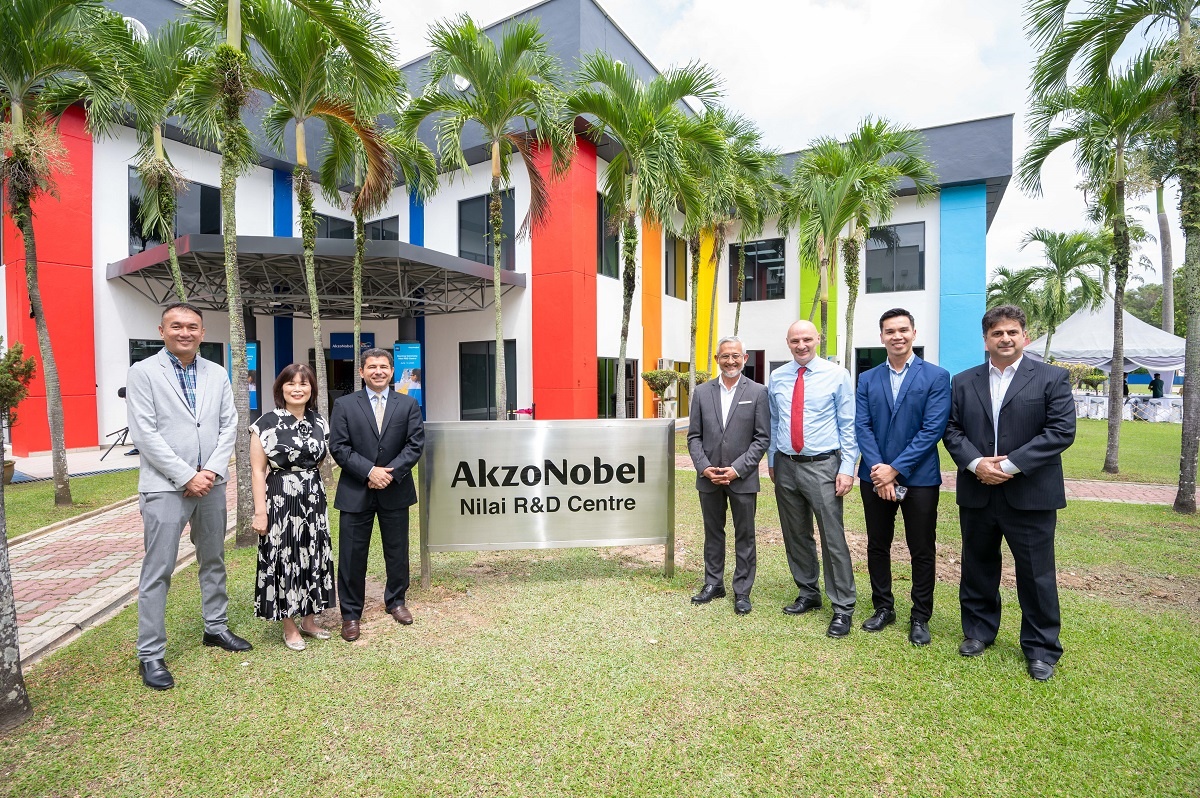 |
| AkzoNobel launches new R&D Centre in Nilai, Malaysia |
With Vietnam aiming for net-zero, what challenges does the industry face, and how is AkzoNobel contributing to the solution?
The good news is that more and more, we’re seeing our customers actively asking for sustainable solutions. It’s becoming part of their own metrics-driven by initiatives from governments like Vietnam’s. Society is also demanding it. People want to know who’s behind the brands they buy.
Sustainability is not just part of our strategy – it is our strategy. There are a few components to this. First, we are working on carbon reduction through product formulation and collaboration with suppliers. We’ve announced a major partnership with BASF to develop bio-based products, using mass balance and other technologies. Furthermore, we’re also working to track raw material impact and choose lower-carbon alternatives. One major step is our push toward water-based technologies.
Sustainability also means social impact. One of our goals was to train over 100,000 people to become painters and gain a profession. We achieved that last year. Vietnam played a big role, training both volunteers and painters through our Let’s Colour initiative.
In Vietnam, we’ve painted many lighthouses, historical buildings, and schools. These projects inspire communities and serve as training opportunities for volunteers.
Another focus is circularity. Our global goal is 100 per cent circular use of materials by 2030. In Vietnam, we’re already applying this at our decorative plant, using byproducts to manufacture bricks and reduce reliance on fresh carbon.
Lastly, diversity and inclusion are key. We’ve set a target of 30 per cent female executives. We're currently at 26 per cent. Vietnam sets a strong example with leaders like Milan, our ASEAN Business Unit Leader, and Dao, our Marketing Director.
How is AkzoNobel’s 'Paint the Future' approach being put into action in Vietnam?
'Paint the Future' is about creating value for today and for generations to come. That vision is rooted in our long history, AkzoNobel has been around for over 230 years.
Sustainable innovation is the first pillar. Our powder coatings protect robots on Mars and oil platforms in the North Sea - technologies that began with our work on the Apollo space programme. These are great examples of combining performance with sustainability. This innovation spans decorative, industrial, and powder coatings.
The second pillar is superior quality and customer service. Our products must perform long term, especially where labour costs are high.
In Vietnam, we work through distributors to ensure fast, reliable delivery. We invest in training painters through the Dulux Academy. Nearly 100,000 painters globally use our learning platforms each semester.
The third pillar is engaged, collaborative people. Whether developing sustainable products or supporting Let’s Colour, our people actively contribute. We also value global collaboration solutions from Vietnam can help Brazil, and vice versa. One of my key roles is to ensure those connections happen.
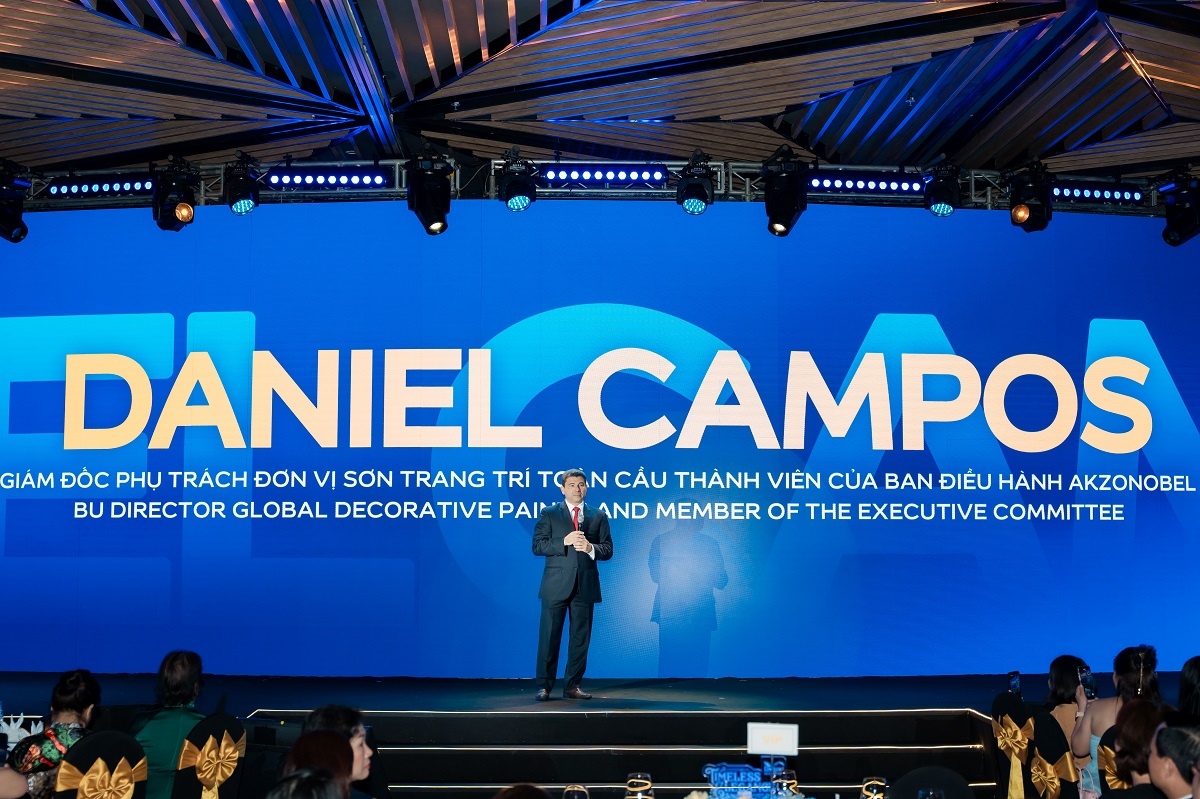 |
| Daniel Campos at AkzoNobel’s “Timeless Elegance” event during his business trip to Vietnam |
How do your local efforts in Vietnam, like sustainable products, factories, and community projects, help bring your 'Paint the Future' vision to life?
Vietnam is a strong example when it comes to sustainable innovation. As I mentioned earlier, technologies like bio-based paints are not widely available globally, Vietnam is one of the few countries where we have them. We're now working to bring these innovations to Latin America. The same goes for our Clean Air Bio-Based products, which are available in China and Vietnam, but not yet in Latin America. We’re collaborating with our colleagues in Asia to make that possible while also helping expand water-based wood-care solutions.
In exterior solutions, Vietnam recently launched Royal Shine, our top-tier technology combining aesthetics and protection. It’s showing strong potential to expand into other markets.
The Nilai Centre plays a key role in quality and customer service, not just in innovation but in ensuring consistent product quality across different manufacturing environments. Our labs test paints under simulated weather conditions to ensure they perform reliably in real-world settings. Localised testing is especially important because conditions like algae growth can vary significantly between regions. In Vietnam, for example, different algae types affect wall colour, leading to pink, gray, or green discolouration.
Our distributor partnerships are also critical. The team in Vietnam has done an outstanding job, some of our global best practices in distributor management originated from South Asia, especially Vietnam.
When it comes to people and collaboration, Vietnam is home to some of our most engaged teams. Initiatives like Let’s Colour, where we paint lighthouses and schools, are only possible because employees actively seek out these opportunities and volunteer their time. They also collaborate with colleagues across the company to share ideas and scale successful efforts.
Cross-functional collaboration is another key to our success. Whether it’s marketing, sales, finance, manufacturing, or supply chain, everything works when people operate as one team. I see that synergy working very well in Southeast Asia - it’s a big reason behind our strong performance in the region.
Looking ahead, how does AkzoNobel hope to contribute to Vietnam’s long-term sustainability goals?
We share the same goals as Vietnam; supporting human development and improving living conditions sustainably. We contribute through product technologies and manufacturing. Furthermore, we’re investing in circularity and clean energy, including solar panels and green energy in our factories.
Paint is largely water-based, so we manufacture close to consumption. That’s why we have two decorative paint factories in Vietnam. This means we’re hiring and training locally, not just internally, but across our ecosystem.
We also help upskill our distributors in commercial and logistics skills. We’re proud to support Vietnam’s dynamic growth in a socially and environmentally responsible way.
 | AkzoNobel inaugurates new production facilities in Bac Ninh On March 1, AkzoNobel celebrated the inauguration ceremony of the new production facilities at Bac Ninh site of AkzoNobel, marking a significant milestone in the sustainable development strategy of the group in Vietnam. |
 | AkzoNobel sets standard in consumer electronics with sustainable and innovative coating solutions Maximilien Schréder, commercial director of the Global Consumer Electronics Coatings and Automotive and Refinish Coatings North Asia, AkzoNobel, highlights the company's strategic emphasis on sustainability through the adoption of sustainable solutions such as waterborne technology, catering to the global and Vietnamese demand for durable, high-quality consumer electronics coatings. |
 | AkzoNobel’s investment for sustainable growth in South Asia-Pacific Earlier this month, AkzoNobel inaugurated new production facilities at its Bac Ninh site to bolster its leading position and enhance sustainable manufacturing in the region. Jeff Jirak, managing director of AkzoNobel's Powder Coatings business, and Şirvan Canıtez, regional commercial director of Powder Coatings in South Asia-Pacific, talked to VIR's Linh Le about the company's strategic plans and sustainable works. |
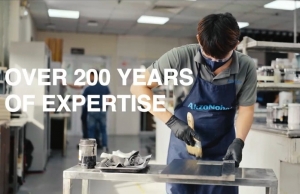 | AkzoNobel Wood Finishes at forefront of quality and sustainability in furniture industry AkzoNobel’s Wood Finishes Division is at the forefront of transforming Vietnam’s wood and furniture industry towards sustainability with its high-quality products and innovative solutions. |
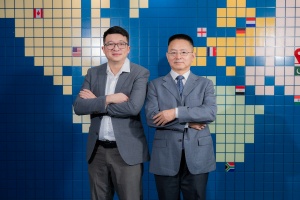 | AkzoNobel advances sustainable innovation in the furniture market AkzoNobel develops superior wood coatings with reduced environmental impact, support air quality, and enhance operational efficiency. VIR’s Bich Ngoc spoke with Denis Wang, technical manager of Wood Finishes APAC, and Leonard Leow, R&D manager of Wood Finishes SEA at AkzoNobel, to discuss the company's unwavering dedication to sustainable development. |
What the stars mean:
★ Poor ★ ★ Promising ★★★ Good ★★★★ Very good ★★★★★ Exceptional
Related Contents
Latest News
More News
- Digital shift reshaping Vietnam’s real estate brokerages (December 31, 2025 | 18:54)
- Allen & Gledhill recognised as Outstanding M&A Advisory Firm (December 18, 2025 | 14:19)
- Inside Lego Manufacturing Vietnam (December 18, 2025 | 11:45)
- The next leap in Cloud AI (December 11, 2025 | 18:19)
- Vietnam’s telecom industry: the next stage of growth (December 11, 2025 | 18:18)
- Five tech predictions for 2026 and beyond: new era of AI (December 11, 2025 | 18:16)
- CONINCO announces new chairman and CEO (December 10, 2025 | 11:00)
- How AWS is powering the next-gen data era (December 09, 2025 | 13:14)
- Outlook in M&A solid for Singapore (December 08, 2025 | 10:31)
- Vietnamese firms are resetting their strategy for global markets (December 05, 2025 | 17:04)

 Tag:
Tag:




















 Mobile Version
Mobile Version